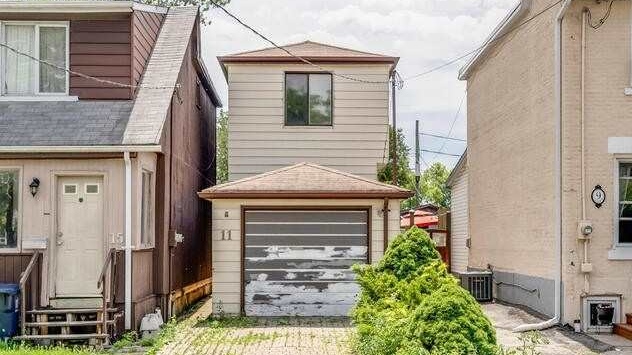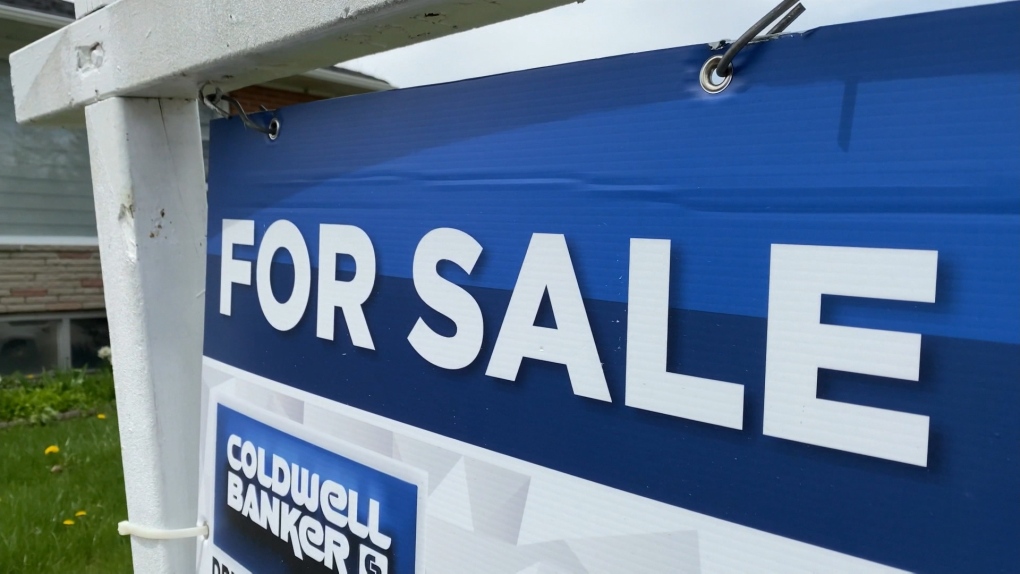People with vacant homes in Toronto could be hit with new tax to help cool housing market
 The home located at 11 Lucy Avenue is seen in this photo. (Realtor.ca)
The home located at 11 Lucy Avenue is seen in this photo. (Realtor.ca)
People with a vacant home in Toronto could be hit with a new tax designed to help cool the housing market.
On Tuesday, city council's executive committee approved a tax design and implementation plan on vacant Toronto homes starting in 2022.
"The goal of the tax is to change the behaviours of vacant home homeowners, encouraging them to sell or rent out the homes, thereby increasing the housing supply," the city said in a news release.
If approved by city council, a bylaw supporting the tax would come into effect on January 1, 2022, and that date would also become the start of the first tax reference year.
According to the city, the initial tax rate being recommended is one per cent of the property's current value assessment (CVA) for the year in which the home is vacant.
The city said they don’t know how many homes in Toronto are currently vacant, but using Vancouver’s tax metrics, the new law could bring in $55 to $66 million per year.

The tax reference year is the year that determines whether the tax is payable, the city says. The tax would become payable for the first time in early 2023, based on the occupancy status during the prior reference year.
The city said a home is considered vacant if it has been unoccupied for more than six months during the previous calendar year.
Some exemptions to this include death of the owner, the homeowner is under medical care, or the home is undergoing renovation.
As part of the tax design, property owners will be required to declare the status of their residential home each year.
Certain properties may be selected for audit on a random or specific criteria basis, the city says.
If approved, a final report and bylaw will be prepared for council’s review by the end of 2021.
"A vacant home tax will result in a much needed increase to Toronto's housing supply, so I’m happy to see it approved today," Mayor John Tory said in a news release. "We simply can't afford to have housing for thousands of homes sitting empty."
CTVNews.ca Top Stories

B.C. tenants evicted for landlord's use after refusing large rent increase to take over neighbouring suite
Ashley Dickey and her mother rented part of the same Coquitlam duplex in three different decades under three different landlords.
Mountain guide dies after falling into a crevasse in Banff National Park
A man who fell into a crevasse while leading a backcountry ski group deep in the Canadian Rockies has died.
Expert warns of food consumption habits amid rising prices
A new survey by Dalhousie University's Agri-Food Analytics Lab asked Canadians about their food consumption habits amid rising prices.
MPP Sarah Jama asked to leave Ontario legislature for wearing keffiyeh
MPP Sarah Jama was asked to leave the Legislative Assembly of Ontario by House Speaker Ted Arnott on Thursday for wearing a keffiyeh, a garment which has been banned at Queen’s Park.
Charlie Woods, son of Tiger, shoots 81 in U.S. Open qualifier
Charlie Woods failed to advance in a U.S. Open local qualifying event Thursday, shooting a 9-over 81 at Legacy Golf & Tennis Club.
Ex-tabloid publisher testifies he scooped up possibly damaging tales to shield his old friend Trump
As Donald Trump was running for president in 2016, his old friend at the National Enquirer was scooping up potentially damaging stories about the candidate and paying out tens of thousands of dollars to keep them from the public eye.
Here's why provinces aren't following Saskatchewan's lead on the carbon tax home heating fight
After Prime Minister Justin Trudeau said the federal government would still send Canada Carbon Rebate cheques to Saskatchewan residents, despite Saskatchewan Premier Scott Moe's decision to stop collecting the carbon tax on natural gas or home heating, questions were raised about whether other provinces would follow suit. CTV News reached out across the country and here's what we found out.
Montreal actress calls Weinstein ruling 'discouraging' but not surprising
A Montreal actress, who has previously detailed incidents she had with disgraced Hollywood producer Harvey Weinstein, says a New York Court of Appeals decision overturning his 2020 rape conviction is 'discouraging' but not surprising.
Caleb Williams, Jayden Daniels and Drake Maye make it four NFL drafts with quarterbacks going 1-3
Caleb Williams is heading to the Windy City, aiming to become the franchise quarterback Chicago has sought for decades.

































